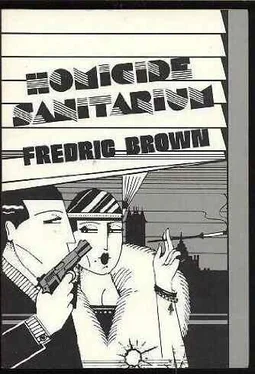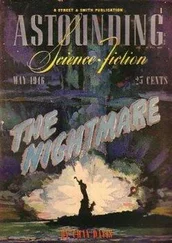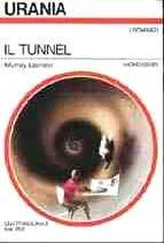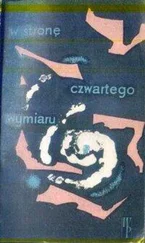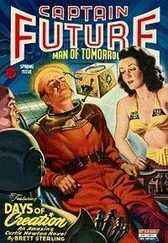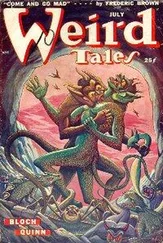Fredric Brown - Homicide Sanitarium
Здесь есть возможность читать онлайн «Fredric Brown - Homicide Sanitarium» весь текст электронной книги совершенно бесплатно (целиком полную версию без сокращений). В некоторых случаях можно слушать аудио, скачать через торрент в формате fb2 и присутствует краткое содержание. Год выпуска: 1985, ISBN: 1985, Издательство: D. McMillan Publications, Жанр: Детектив, на английском языке. Описание произведения, (предисловие) а так же отзывы посетителей доступны на портале библиотеки ЛибКат.
- Название:Homicide Sanitarium
- Автор:
- Издательство:D. McMillan Publications
- Жанр:
- Год:1985
- ISBN:9780960998623
- Рейтинг книги:5 / 5. Голосов: 1
-
Избранное:Добавить в избранное
- Отзывы:
-
Ваша оценка:
- 100
- 1
- 2
- 3
- 4
- 5
Homicide Sanitarium: краткое содержание, описание и аннотация
Предлагаем к чтению аннотацию, описание, краткое содержание или предисловие (зависит от того, что написал сам автор книги «Homicide Sanitarium»). Если вы не нашли необходимую информацию о книге — напишите в комментариях, мы постараемся отыскать её.
Homicide Sanitarium — читать онлайн бесплатно полную книгу (весь текст) целиком
Ниже представлен текст книги, разбитый по страницам. Система сохранения места последней прочитанной страницы, позволяет с удобством читать онлайн бесплатно книгу «Homicide Sanitarium», без необходимости каждый раз заново искать на чём Вы остановились. Поставьте закладку, и сможете в любой момент перейти на страницу, на которой закончили чтение.
Интервал:
Закладка:
It sounded screwy, even to me. Certainly he could not have had anything to do with whatever had happened down there. He had preceded me into the morgue only by a second and hadn't even reached the case when I was beside him. But I knew what the police would say if I let him go before they had a chance to get his story.
Then Drager's voice was saying a sleepy, "Hullo," into my ear.
"Bill," I said, "you got to come down here. That corpse down-stairs--it's--I--"
The sleepiness went out of Drager's voice.
"Calm down, Jerry," he said. "It can't be that bad. Now, what happened?"
I finally got it across.
"You phoned the department first, of course?" Drager asked.
"N-no. I thought of you first because--"
"Sit tight," he said. "I'll phone them and then come down. I'll have to dress first, so they'll get there ahead of me. Don't go down to the morgue again and don't touch anything."
He put the receiver on the hook, and I felt a little better. Somehow the worst seemed to be over, now that it was off my chest. Drager's offering to phone the police saved me from having to tell it again, over the phone.
The tall man--I remembered now that he had given the name Roger Burke--was leaning against the wall, weakly.
"Did--did I get from what you said on the phone that the body wasn't that way when--when they brought it in?" he asked.
I nodded. "It must have happened within the last hour," I said. "I was down there at midnight, and everything was all right then."
"But what--what happened?"
I opened my mouth and closed it again. Something had hap-pened down there, but what? There wasn't any entrance to the morgue other than the ventilator and the door that opened at the top of the stairs. And nobody--nothing--had gone through that door since my trip of inspection.
I thought back and thought hard. No, I hadn't left this office for even a minute between midnight and the time the night bell had rung at two o'clock. I had left the office then, of course, to answer the door. But whatever had happened had not happened then. The thermometer downstairs proved that.
Burke was fumbling cigarettes out of his pocket. He held out the package with a shaky hand, and I took one and managed to strike a match and light both cigarettes.
The first drag made me feel nearly human. Apparently he felt better too, because he said:
"I--I'm afraid I didn't make identification one way or the other. You couldn't--with--" He shuddered. "Say, my brother had a small anchor tattooed on his left forearm. I forgot it or I could have asked you over the phone. Was there--"
I thought back to the file and shook my head.
"No," I said definitely. "It would have been on the record, and there wasn't anything about it. They make a special point of noting down things like that."
"That's swell," Burke said. "I mean--Say, if I'm going to have to wait, I'm going to sit down. I still feel awful."
Then I remembered that I had better phone Dr. Skibbine, too, and give him the story first-hand before the police got here and called him. I went over to the phone.
The police got there first--Captain Quenlin and Sergeant Wilson and two other men I knew by sight but not by name. Bill Drager was only a few minutes later getting there, and around three o'clock Dr. Skibbine came.
By that time the police had questioned Burke and let him go, although one of them left to go home with him. They told him it was because they wanted to check on whether his brother had shown up yet, so the Missing Persons Bureau could handle it if he hadn't. But I guessed the real reason was that they wanted to check on his identity and place of residence.
Not that there seemed to be any way Burke could be involved in whatever had happened to the body, but when you don't know what has happened, you can't overlook any angle. After all, he was a material witness.
Bill Drager had spent most of the time since he had been there downstairs, but he came up now.
"The place is tighter than a drum down there, except for that ventilator," he said. "And I noticed something about it. One of the vanes in it is a little bent."
"How about rats?" Captain Quenlin asked. Drager snorted. "Ever see rats break a sheet of glass?" "The glass might have been broken some other way."
Quenlin looked at me. "You're around here nights, Jerry Grant. Ever see any signs of rats or mice?"
I shook my head, and Bill Drager backed me up. "I went over the whole place down there," he said. "There isn't a hole anywhere. Floor's tile set in cement. The walls are tile, in big close-set slabs, without a break. I went over them."
Dr. Skibbine was starting down the steps.
"Come on, Jerry," he said to me. "Show me where you and this Burke fellow were standing when he let out a yip."
I didn't much want to, but I followed him down. I showed him where I had been and where Burke had been and told him that Burke had not gone closer to the case than about five feet at any time. Also, I told him what I had already told the police about my looking at the thermometer in the case.
Dr. Skibbine went over and looked at it.
"Seventy-one now," he said. "I imagine that's as high as it's going. You say it was sixty-three when you saw it at two? Yes, I'd say the glass was broken between twelve-thirty and one-thirty."
Quenlin had followed us down the stairs. "When did you get home tonight, Dr. Skibbine?" he asked.
The coroner looked at him in surprise. "Around midnight. Good Lord, you don't think I had anything to do with this, do you, Quenlin?"
The captain shook his head. "Routine question. Look, Doc, why would anybody or anything do that?"
"I wouldn't know," Skibbine said slowly, "unless it was to prevent identification of the corpse. That's possible. The body will never be identified now unless the man has a criminal record and his prints are on file. But making that 'anything' instead of 'anybody' makes it easier, Cap. I'd say 'anything' was hungry, plenty hungry."
I leaned back against the wall at the bottom of the stairs, again fighting nausea that was almost worse than before.
Rats? Besides the fact that there weren't any rats, it would have taken a lot of them to do what had been done.
"Jerry," said Bill Drager, "you're sure you weren't out of the office up there for even a minute between midnight and two o'clock? Think hard. Didn't you maybe go to the washroom or something?"
"I'm positive," I told him.
Drager turned to the captain and pointed up to the ventilator.
"There are only two ways into this morgue, Cap," he said. "One's through the door Jerry says he sat in front of, and the other's up there."
My eyes followed his pointing finger, and I studied the ventilator and its position. It was a round opening in the wall, twelve or maybe thirteen inches across, and there was a wheel-like arrangement of vanes that revolved in it. It was turning slowly. It was set in the wall just under the high ceiling, maybe sixteen feet above the floor, and it was directly over the display case.
"Where's that open into?" Quenlin asked.
"Goes right through the wall," Dr. Skibbine told him. "Opens on the alley, just a foot or two above the ground. There's another wheel just like that one on the outside. A little electric motor turns them."
"Could the thing be dismantled from the outside?"
Dr. Skibbine shrugged. "Easiest way to find that out is to go out in the alley and try it. But nobody could get through there, even if you got the thing off. It's too narrow."
"A thin man might--"
"No, even a thin man is wider than twelve inches across the shoulders, and that's my guess on the width of that hole."
Quenlin shrugged.
"Got a flashlight, Drager?" he asked. "Go on out in the alley and take a look.
Although if somebody did get that thing off, I don't see how the devil they could have--"
Читать дальшеИнтервал:
Закладка:
Похожие книги на «Homicide Sanitarium»
Представляем Вашему вниманию похожие книги на «Homicide Sanitarium» списком для выбора. Мы отобрали схожую по названию и смыслу литературу в надежде предоставить читателям больше вариантов отыскать новые, интересные, ещё непрочитанные произведения.
Обсуждение, отзывы о книге «Homicide Sanitarium» и просто собственные мнения читателей. Оставьте ваши комментарии, напишите, что Вы думаете о произведении, его смысле или главных героях. Укажите что конкретно понравилось, а что нет, и почему Вы так считаете.
